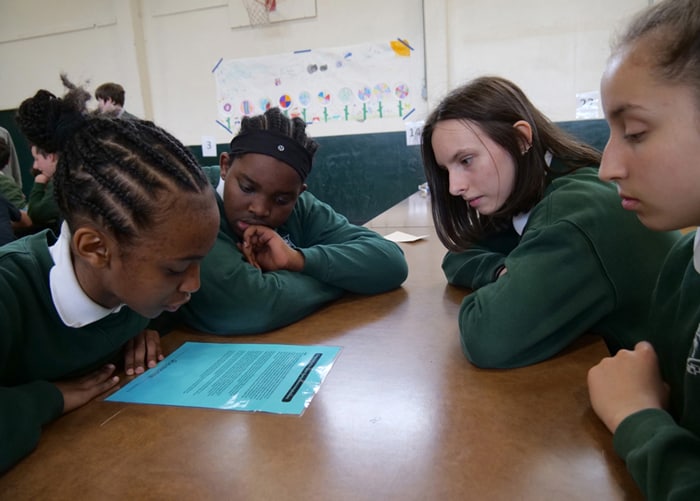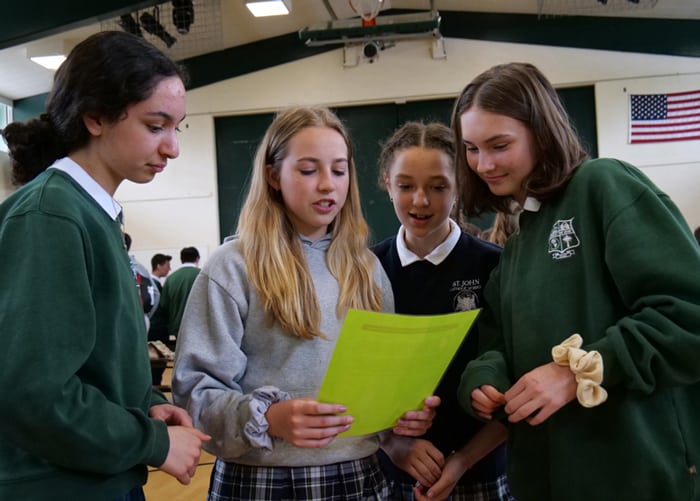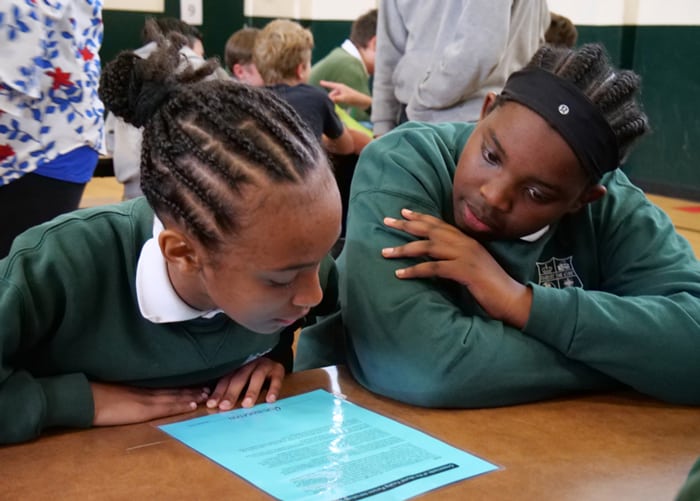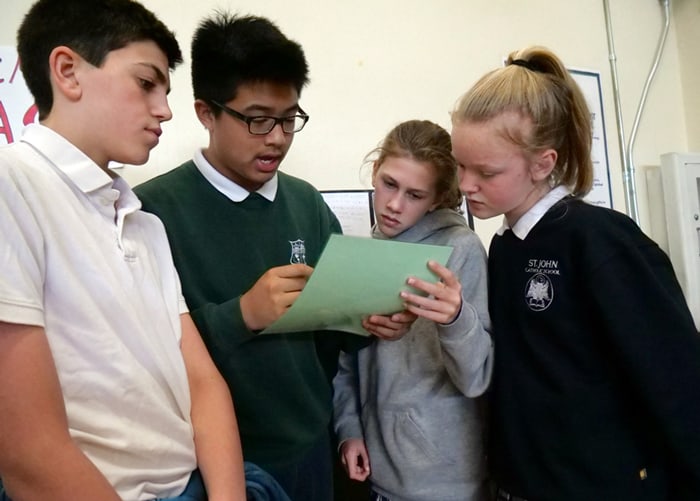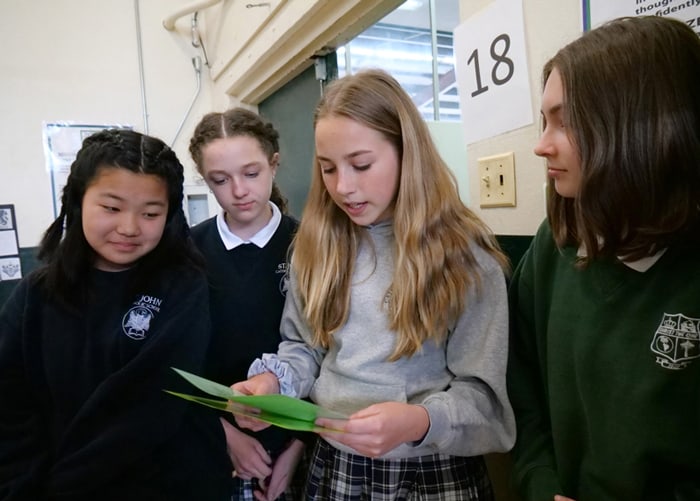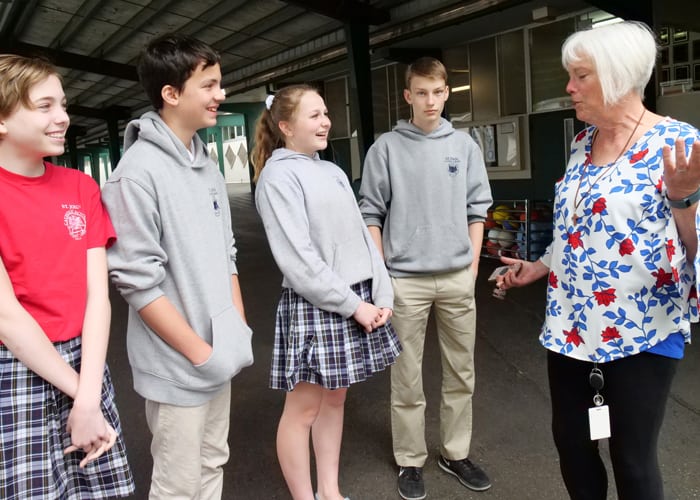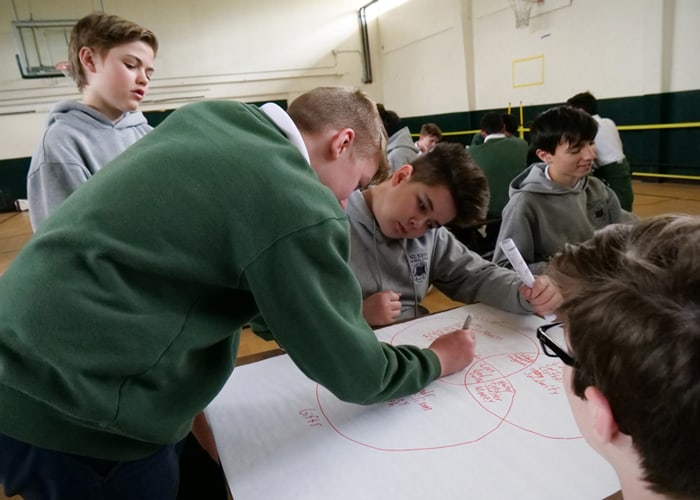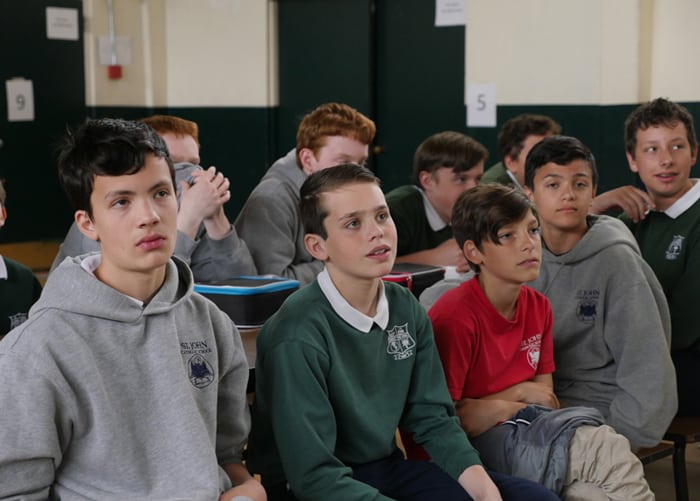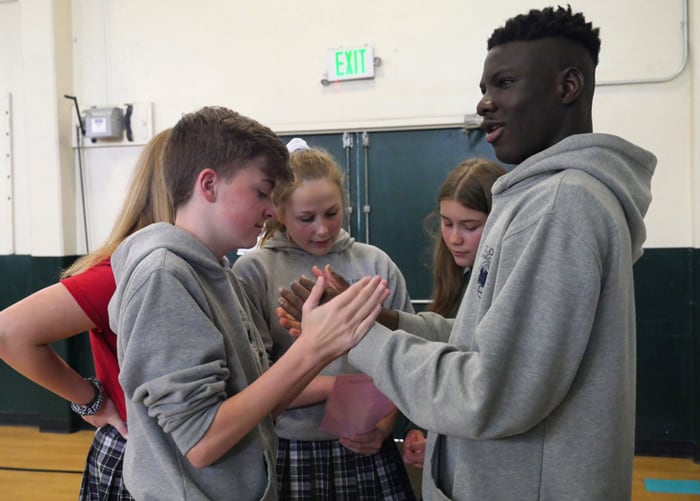Middle school students learn how to respond as Jesus would to world needs today.
After a year of participating in the Missionary Discipleship Institute with her class, a student from St. George Catholic School in Seattle said, “I have loved MDI because we don’t always stay in the classroom to learn how Jesus acted and how he wants us to act, but we also go out and do work as Jesus’ disciples.”
The Missionary Discipleship Institute (MDI) is a seventh-grade religion curriculum born through the collaboration of the Archdiocese of Seattle Office for Catholic Schools and Missions Office and the Maryknoll Fathers and Brothers. In addition to Seattle, MDI is now used in the Chicago Archdiocese. In both cities, archdiocesan leaders and Maryknoll mission educators form MDI teams that work with teachers to implement the curriculum.
Recent studies show that many young people are leaving the Church at the median age of 13, often because they believe the Church isn’t responding to the problems of today’s world. The Missionary Discipleship Institute counters this perception.
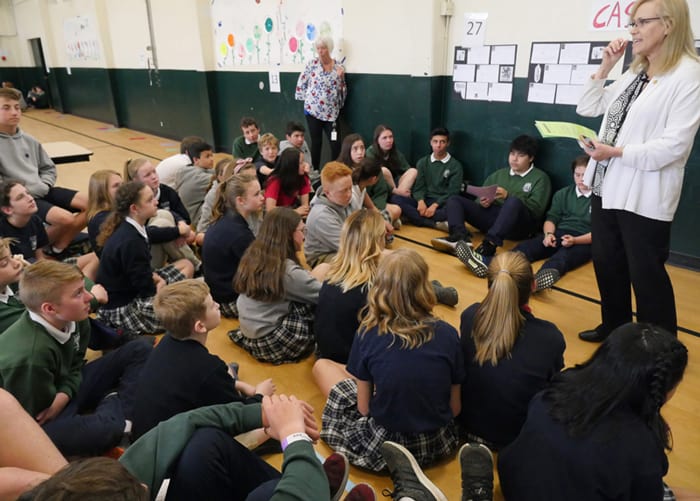
Sandra Barton Smith, of the Seattle Archdiocese, shares what it means to be a missionary disciple beyond middle school, as teacher Mari Halley looks on. (Peter Saunders/U.S.)
Students learn that Jesus reached out to people on the margins of society, where we often find missioners authentically living Jesus’ call. The MDI invites students to do the same.
Over the course of the year, the middle schoolers identify challenges that our modern world faces, learn about Catholic missioners doing God’s work locally and globally, and then plan an action to make a difference.
Learning about the work of Maryknoll missioners around the world, students see that the Catholic Church is indeed responding to the greatest needs today through empowerment, justice and the corporal and spiritual works of mercy. Seattle’s Superintendent for Catholic Schools Kristin Dixon says, “The Missionary Discipleship Institute gets to the very heart of why our schools exist: to help our students fall in love with Jesus and all God’s people, and secondly, to be faith-filled citizens to today’s challenges!”
Father James Lee, a former Maryknoll priest and now pastor at St. Michael’s parish in Olympia, Wash., explains the benefit of MDI in his parish school: “As a (former) Maryknoll missionary priest in Tanzania, I know firsthand how being exposed to other cultures is transformative on so many levels. I’m grateful for the work of the Missionary Discipleship Institute in giving middle schoolers the opportunity to not only educationally expand their horizons but also become involved in hands-on ministry that can change people’s lives and lay a foundation for their future involvement in the Church.”
This last year, the curriculum took an abrupt turn with the arrival of COVID-19. Drawing inspiration from the missioners they introduce, the MDI team stepped up with flexibility and expediency. Lessons were transformed into electronic learning activities and assignments, classroom planning was done over the phone and Zoom calls, and students brought their parents into helping them complete the MDI process. Instead of the traditional “end-of-the-year project,” where students integrate their year-long learning with a class-wide project, each student discerned his or her individual response within the larger classroom context: how we can love as Jesus would love in the time of COVID-19.
“The core of this class is strikingly relevant right now,” said Amy Hall, MDI teacher at Christ the King Catholic School in Seattle. “Perhaps it is more important than ever for our middle schoolers.” Even as the middle schoolers trained to reach out with love to those on the margins of society, COVID-19 expanded this demographic and the students responded with flying colors.
They sewed facemasks, designed place cards for meal trays at assisted living centers, delivered groceries and flowers to the doorsteps of elderly neighbors, wrote letters to youth in detention centers and much more.
Photos from Capstone event 2019 (Peter Saunders/U.S.)
Those who had researched topics other than COVID-19 worked to make a positive impact in the areas they chose. They raised funds for international projects, made family compost bins, committed to taking shorter showers, made welcome kits for refugee families, wrote advocacy letters to elected officials and wrote prayers to pray with their families for those on the margins. Students in one class decided they still wanted to make a difference together, so they researched statistics on how many children in nearby schools were on free and reduced lunches. Then they raised funds to offer nutritional support to those schools.
Near the end of the year, MDI students traditionally gather to celebrate the work they have done and meet other local Catholic school students who are completing the program. This year that gathering had to be canceled for safety precautions. Again, the MDI team sprang into action. Rather than having a four-hour sharing in the gym at Seattle University, the MDI team recorded videos of local church leaders and recently graduated college students who are working to make a difference in the world. The “Capstone Day” turned into a week of lessons for the students to listen to the pre-recorded talks, learn about the Christian vocation, reflect on their own lives, and do activities both alone and with their families, ending with a blessing from parents or godparents and a commissioning into lifelong missionary discipleship for the rising eighth-graders.
At the end of this unique school year, one student reflected online, “I learned so much through MDI. First off, I learned more about how God’s mission wasn’t supposed to end when Jesus ascended. I learned about how we, as the disciples of Jesus, are to continue his mission on earth by helping all of God’s people, especially those on the margins, and spreading the word of the Lord to anyone we can. Secondly, I learned about all the different ways we can serve God’s people, such as the corporal and spiritual works of mercy. Knowing these, I now have various ways I can help God’s people. Lastly, especially in our time at home, I’ve learned about how God has a plan for all of us, a vocation. He wants us to use our gifts and passions to solve a need of the world.”
Another student typed back, “The MDI taught me that everyone is important. Even though we are separated by race, gender, sexuality, age and country boundaries, we are all part of God’s family. MDI is one of the most important things I have ever done. I wish everyone could have this same experience.”
Featured Image: Students from Christ the King and St. John’s Schools in Seattle met at 2019 Capstone Day to share what they learned about missionary discipleship. (Peter Saunders/U.S.)
